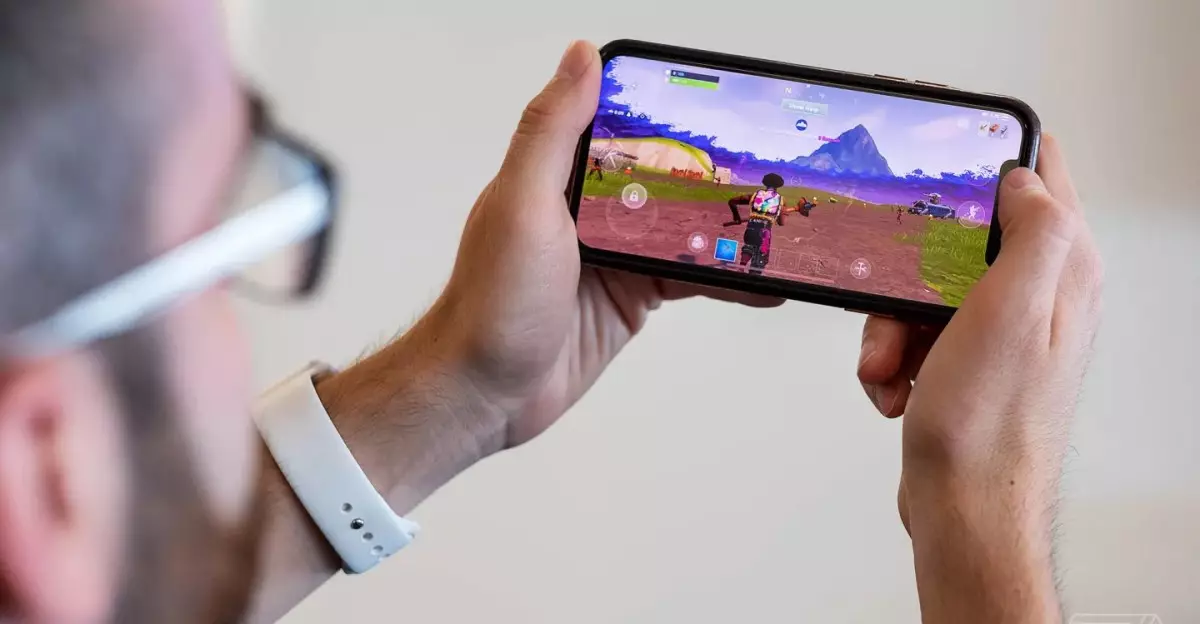The saga surrounding Fortnite’s journey back to the iOS App Store is more than just a video game anecdote; it encapsulates the tightening grip of digital economies and market monopolies. Epic Games, the titan behind Fortnite, had its flagship battle begun nearly five years ago when Apple removed the game from the App Store. This contentious decision followed Epic’s daring launch of its in-app payment system, which challenged the status quo of Apple’s commission-based revenue model. Epic’s move was a bold declaration against Apple’s seemingly unassailable hold on the app marketplace, highlighting the underlying fractures in how digital commerce is conducted.
The Legal Landscape
Fast forward to recent events, following extensive litigation in the case of Epic Games v. Apple, a landmark ruling finally tipped the scales. The court determined that Apple must allow developers to steer users toward alternative payment methods, ostensibly opening the floodgates for a new wave of competition in the app marketplace. CEO Tim Sweeney’s promising words projected hope for Fortnite fans: if Apple allowed a fairer financial landscape, the game would once again grace the App Store. His so-called “peace proposal” was heartfelt—demonstrating a desire for mutual benefit over perpetual litigation. This ruling was not just a win for Epic Games but a potential paradigm shift in app store dynamics.
Drama Unfolding
Yet, even after the court ruling, the road to reinstatement was paved with turmoil. Initial attempts to reinstate Fortnite were met with bureaucratic hurdles, as Apple sought further assurances against unintended consequences for other regions. This tug-of-war between two colossal entities lent a theatrical flair to what is essentially an economic battle. The tension escalated as Epic sought judicial intervention to pressure Apple into reconsidering their stance, only to be met with a definitive assertion from the court—that resolution doesn’t always require extra deliberation.
The stakes of this confrontation extend beyond mere app availability. It represents a critical moment for developers large and small, shedding light on the monopolistic tendencies of app store giants. Developers are observing closely, knowing that decisions made in courtrooms could redefine their long-term strategies and relationships with platforms that dominate the digital landscape.
A Game of Incentives
In the wake of Fortnite’s return, Epic Games is now actively incentivizing players to engage with their proprietary payment systems, offering significant rewards for those who choose to purchase in-game currency outside of the App Store’s ecosystem. The lure of a 20 percent rebate in Epic Rewards is not merely a marketing ploy—it’s strategic. Epic is looking to build a robust financial framework that thrives on user loyalty rather than compliance with Apple’s profit margin standards. This pivot exemplifies how competition sparks innovation and challenges the traditional approaches to in-game purchases.
Thus, the renewed availability of Fortnite isn’t solely a business victory for Epic Games; it sets a standard for how developer-publisher dynamics might evolve. When a company champions a business model aligned with customer interests rather than restrictive fees, it opens the doors to healthier competition—an outcome that could encourage other developers to reassess their relationships with major app marketplaces.
A Glimpse into the Future of Gaming
The series of events surrounding Fortnite’s return underscores a broader dialogue about what the future holds for developers in a landscape dominated by a few major players. Epic Games’ return to the iOS App Store and its aggressive move to boost its own payment system exemplify the shifting tides of digital commerce in the gaming world. As the landscape evolves, it invites not just players, but other creators to explore innovative pathways to monetize their work effectively.
While Fortnite’s rebirth on the App Store is a celebration for gamers, it represents much more—a potential shift in power dynamics between platforms and developers. As Epic presses forward, the implications of these choices will ripple through the gaming industry, ultimately deciding how games will be distributed and monetized in an increasingly interconnected world.


Leave a Reply